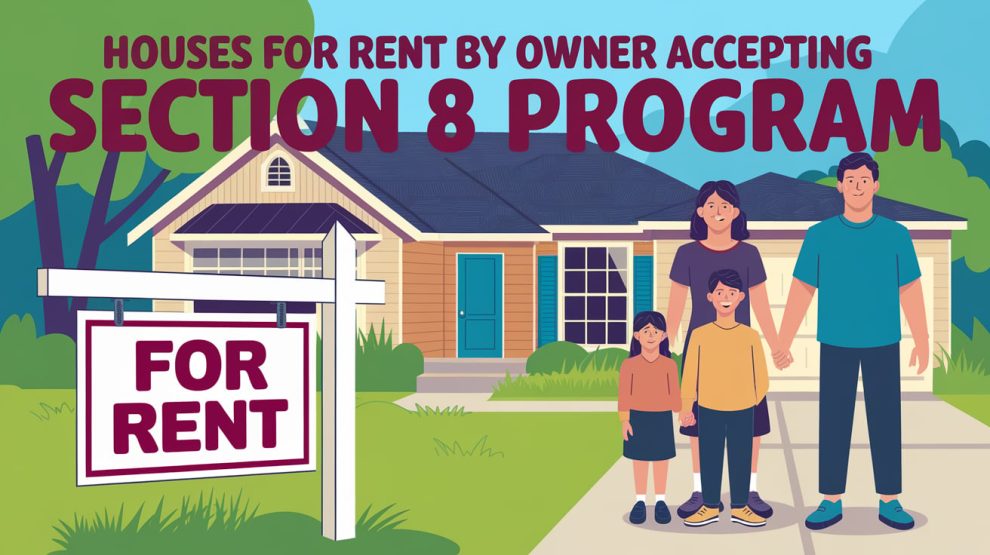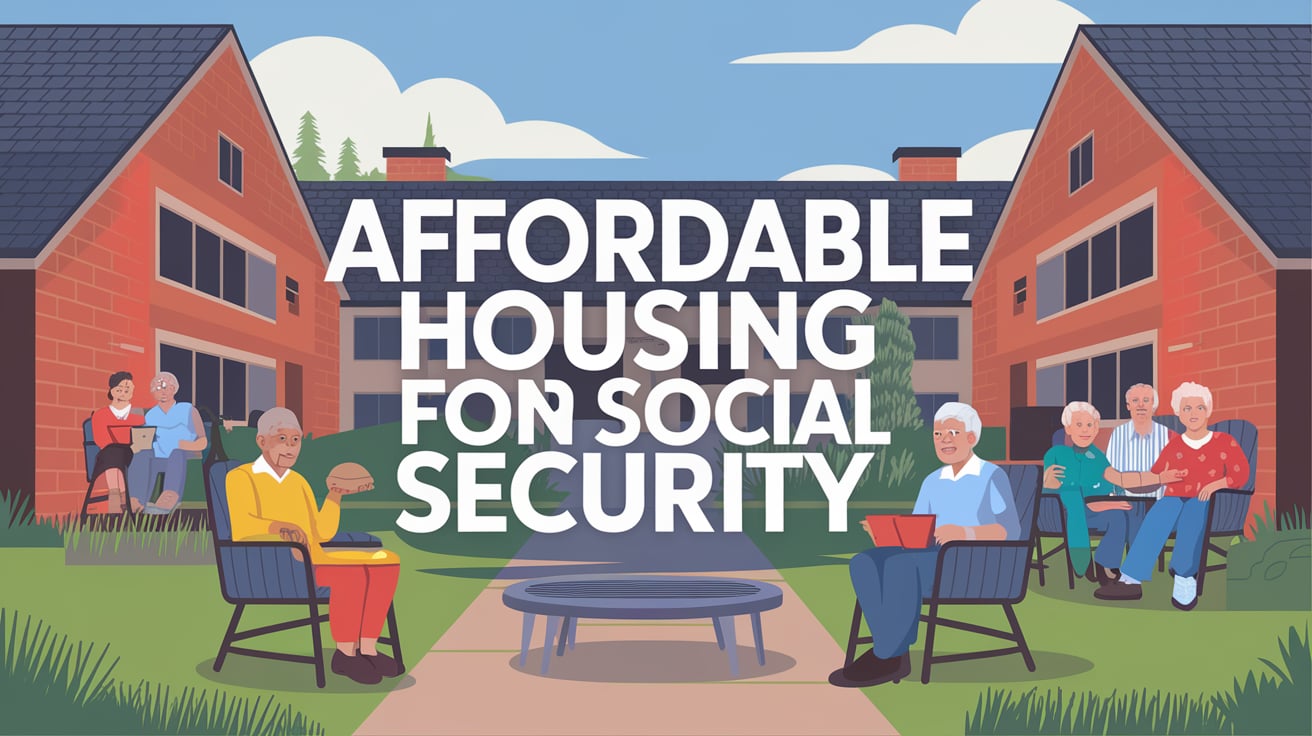The Section 8 Housing Choice Voucher Program is a federal initiative that helps low-income individuals and families find affordable housing. This program is a lifeline for many people struggling to make ends meet, providing them with the opportunity to rent homes from private landlords who accept Section 8 vouchers.
In this article, we’ll explore what the Section 8 program is, who is eligible, how to apply, and ways to find houses for rent by owners who accept Section 8 vouchers. We’ll also cover how to navigate renting from a private landlord while ensuring that you follow the program’s guidelines.
What Is Section 8 Housing Choice Voucher Program?
The Section 8 Housing Choice Voucher Program is a federal assistance program administered by the U.S. Department of Housing and Urban Development (HUD). It allows low-income families, seniors, and disabled individuals to afford housing in the private market by providing rental subsidies.
Tenants are responsible for paying approximately 30% of their income toward rent, with the voucher covering the remaining portion up to HUD’s Fair Market Rent (FMR) guidelines.
Who Is Eligible for Section 8 Housing Voucher?
Eligibility for the Section 8 program depends on several factors, including income, citizenship, and household size. Below are the primary eligibility criteria:
Citizenship or Eligible Immigration Status
To qualify for Section 8, applicants must either be U.S. citizens or have eligible immigration status. Non-citizens who do not meet the immigration criteria are not eligible for assistance.
Income Limitations
Eligibility is largely income-based. The household’s total gross income must fall below the local income limits set by HUD. These limits vary by location and are usually 50% of the area’s median income (AMI). Preference is often given to families with income levels below 30% of the AMI.
Eviction History and Background Check
Applicants with a history of evictions or criminal activities, particularly for drug-related offenses, may be disqualified from the program. However, local housing authorities have discretion and may allow individuals with a past eviction under certain circumstances.
Preferences
Local housing authorities may prioritize certain groups, such as veterans, the elderly, disabled individuals, or families with young children. These preferences can help applicants move up the waiting list faster.
How To Apply for Section 8 Housing Choice Voucher Program?
The application process for Section 8 is relatively straightforward but can take time due to high demand. Here’s how it works:
- Locate Your Local Public Housing Agency (PHA): The first step is to find your local PHA and check if they are accepting applications. Some areas may have long waiting lists.
- Submit an Application: Complete the application form provided by your local PHA. This will require information about your household, income, and assets.
- Wait for Approval: After submitting your application, you will either be placed on a waiting list or notified of your eligibility.
- Interview and Documentation: If your application reaches the top of the waiting list, you’ll be called for an interview and asked to provide supporting documents, such as proof of income and identification.
Is There a Waiting List for Section 8 Housing Choice Voucher Program?
In many areas, there is a waiting list for Section 8 vouchers due to high demand and limited funding. The waiting period can range from a few months to several years. Some local housing authorities periodically open and close their waiting lists, while others maintain them continuously.
Ways to Find Houses That Accept Section 8 Vouchers
Finding a rental property that accepts Section 8 vouchers can be challenging, but there are several methods you can use:
Visit the HUD Website
HUD provides a searchable database of Section 8-approved housing on its official website. This is a good starting point for finding eligible properties in your area.
Visit Local Housing Websites
Some local public housing authorities have dedicated websites listing available Section 8 housing in the area.
Search in Facebook Groups
Many communities have Facebook groups where landlords post available rental properties. You can search these groups specifically for landlords accepting Section 8 vouchers.
Contact Local Churches
Local churches and community organizations often have resources or connections to landlords willing to accept Section 8 tenants.
Search in Local Area
Physically visiting neighborhoods and looking for “For Rent” signs may lead to landlords open to Section 8. It’s also helpful to ask around in local communities for potential leads.
Visit Online Websites
Websites like Craigslist, Zillow, and Rent.com often have rental listings that specify whether the landlord accepts Section 8 vouchers.
Network with Your Family Members and Friends
Word of mouth can be an effective way to find landlords accepting Section 8 tenants. Ask family, friends, and co-workers if they know of any available rentals.
How To Rent From a Private Landlord Who Accepts Section 8 Housing Choice Voucher Program?
Renting from a private landlord with a Section 8 voucher requires careful attention to the program’s rules and regulations. Below are some steps to follow:
Become Aware of the Eligibility Criteria
Make sure the landlord and the property meet Section 8 eligibility requirements. The unit must pass an inspection conducted by your local PHA to ensure it meets health and safety standards.
Know Your Rights as a Tenant
As a Section 8 tenant, you have legal protections under federal law. These protections ensure you can’t be discriminated against because you are using a housing voucher.
Review the Lease Agreement Carefully
Before signing any lease, review it to ensure it complies with Section 8 guidelines. The PHA will also review the lease to confirm it meets program standards.
Communicate Properly and Follow the Program Guidelines
Maintaining good communication with both your landlord and PHA is crucial. Make sure rent payments are handled correctly, and report any changes in income or household size to your PHA immediately.
FAQs
Can a landlord refuse to accept Section 8 vouchers?
Yes, some landlords may choose not to participate in the Section 8 program. However, some areas have laws prohibiting discrimination based on income source, including Section 8.
How long does it take to get a Section 8 voucher?
It depends on your location. In some cities, the wait time can be several years due to long waiting lists.
What happens if my income increases while using Section 8?
If your income increases, you are required to report it to your PHA, and your rent contribution may be adjusted accordingly.
Can Section 8 vouchers be used for apartments and houses?
Yes, Section 8 vouchers can be used for both apartments and houses, as long as the property meets the program’s requirements.
Conclusion
The Section 8 Housing Choice Voucher Program is an essential tool for low-income families seeking affordable housing in the private market. Finding houses for rent by owners who accept Section 8 vouchers can be challenging but not impossible with the right resources and strategies. By understanding the eligibility criteria, following proper procedures, and knowing your rights, you can secure housing through this program while maintaining a positive relationship with your landlord.








Add Comment